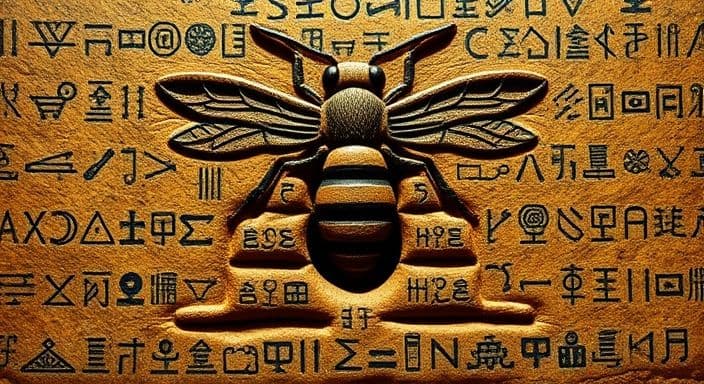
Beekeeping: A Journey Through History and Modern Practices
October 18, 2024
Jim Whiteford
This blog explains a history of beekeeping and how it has evolved into our modern day equivalent.
Beekeeping
Table of Contents
Beekeeping: A Journey Through History and Modern Practices
I’ve been keeping bees for a while now, and it’s amazing to think about how long humans have worked with them. People have done this for thousands of years. Did you know that ancient folks kept bees too? They wanted honey and wax. Over time, beekeeping changed a lot because of things like culture and money. Moving bees around for farming is a big deal now, but it comes with problems. Some prefer natural ways to keep bees, letting them live more like they would in the wild. Pests and diseases? Always a problem. Bees need care, always.
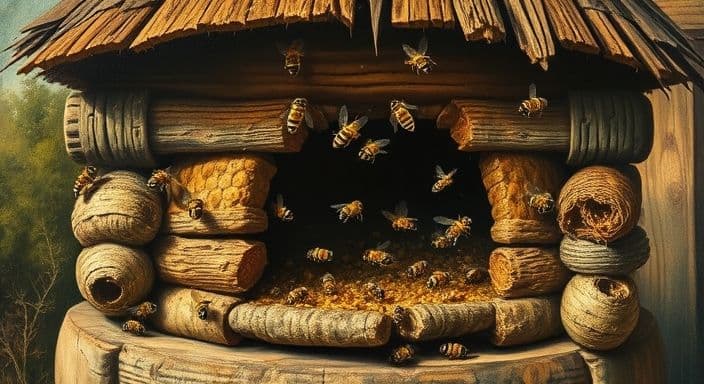
The History of Beekeeping
Ancient Beginnings:
Beekeeping started long ago. Long, long ago, in Egypt—like 3000 BC—they already knew how to get honey. They didn’t have fancy hives, just found wild ones. Honey wasn’t just sweet; it was special, like medicine or magic. Egyptians thought bees were kind of royal, symbols of kings and life. Some people think they were connected to gods, too. You can see drawings of beekeepers blowing smoke into hives—same trick we use now. They saved honey in jars. Crazy thing? Those jars? Some lasted thousands of years, still good. Look at places like the Met Museum or history books for more.
Bees were really important long ago, like in Mesopotamia. People back then, like the Sumerians, wrote about using honey and beeswax for fixing cuts and making special creams. They thought it was super useful. Even in the Code of Hammurabi, which is this really old book of laws, there’s stuff about bees. Shows how big a deal it was for them.
Greece? Oh, bees were a big deal there too. They saw honey as a god's present. They made clay hives, not wooden ones like now. Aristotle? He was all into bees, wrote so much about them. Crazy how Mount Hymettus honey still rules!
The Romans learned a lot about keeping bees from the Greeks and made it even better. They had different types of hives, like ones made from clay or woven baskets. To get honey without getting stung, they’d use smoke to calm the bees. Roman writers like Virgil and Pliny the Elder loved talking about bees. Virgil’s book Georgics has advice on bees, and you can find Pliny’s ideas online. Honey wasn’t just for eating—it helped heal people and kept fruit and wine fresh. They knew bees were important for farms, helping plants grow by pollination, which fed their whole empire.
When Rome expanded, so did their beekeeping knowledge, even reaching Britain. After Rome fell, people kept using these methods, slowly improving them over time. These old tricks became the basics of how we care for bees today.
Medieval Period:
Back in the Middle Ages, bees and honey were a big deal. They buzzed their way into monasteries, where monks turned into bee experts. Writing down all their tips and tricks, these monks made sure the art of beekeeping didn’t get lost. Hives got better too—straw skeps came along, giving bees nice homes and making honey easier to grab.
A famous monk beekeeper? Brother Adam. Lived at Buckfast Abbey, in England. Born 1898. He wasn’t just any beekeeper; he was legendary. After a nasty bee disease hit, he searched far and wide—Europe, North Africa—hunting for strong bees. His work made the Buckfast bee. Still famous today, those bees resist diseases and thrive. Monks plus science? Bee magic!
The 19th Century and Modern Innovations:
Back in the 19th century, something big happened in beekeeping. Lorenzo Langstroth came up with the movable-frame hive in 1851. It changed everything. Now, people could look after their bees better and get honey without breaking the hive apart. This invention? It wasn’t just for fun. Langstroth had business in mind. His hive made it easier to produce lots of honey on a large scale. You didn’t have to ruin the hive to get the honey out. It meant you could go back again and again for more. Beekeepers loved it. It was smart and super helpful.
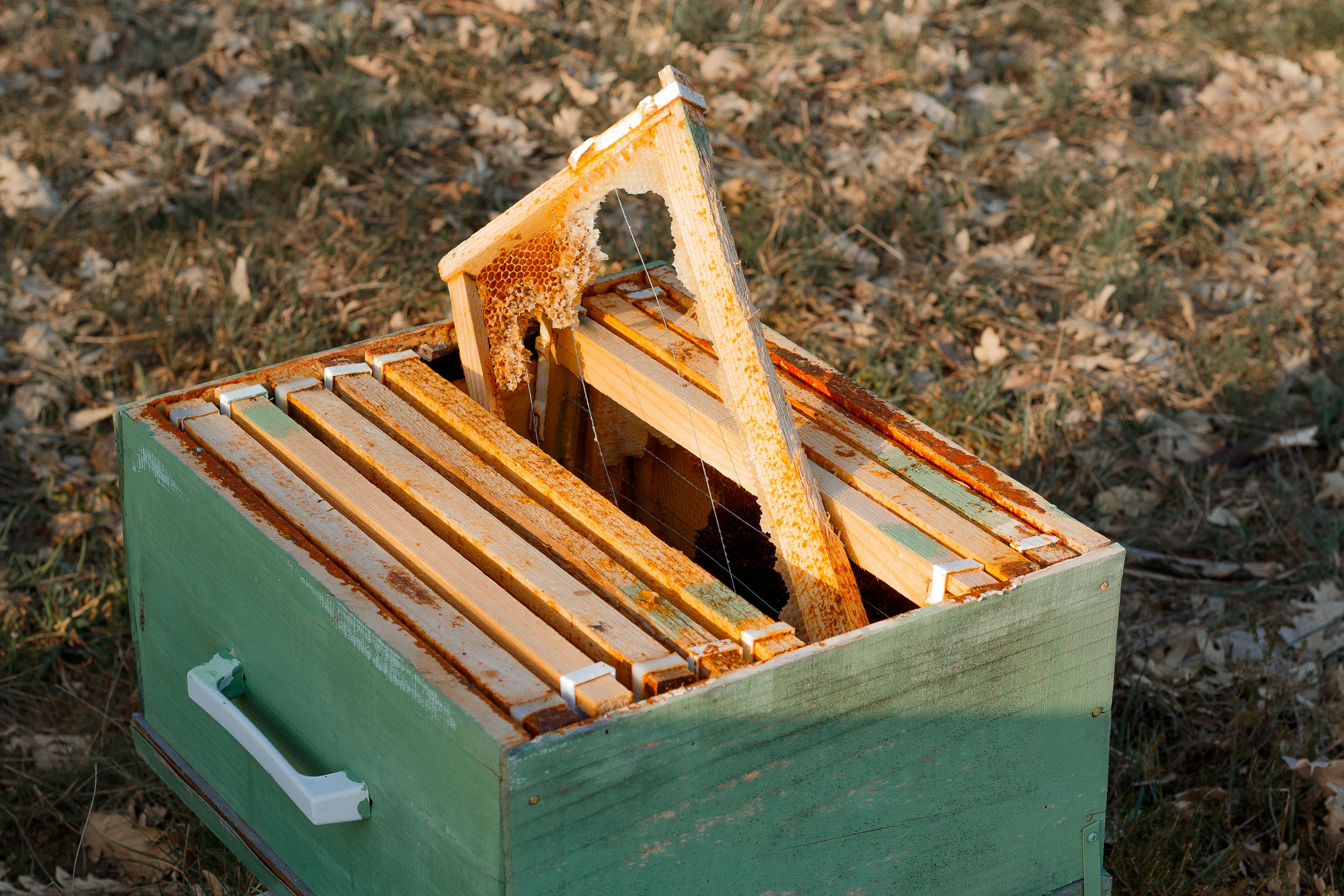
The way people keep bees changed a lot when stuff like metal and plastic got used for hives. Hives made with these materials are simpler to make and fix up. Commercial folks like them since they're easy to move around and open. You can check on the bees a lot and get more honey out of it.
But some people, like hobby beekeepers, want something else. They’re using big, long hives, like Layens or top bars. These hives are heavier but more like what bees live in naturally. Horizontal hives keep bees warmer and safer, especially in bad weather. It's not about honey—it’s about helping bees thrive.
The Commercialization of Beekeeping
Long ago, people kept bees mainly for themselves, just to get a little honey and wax. Things started changing in the 1900s. As time went on, more folks wanted honey—lots of honey. Big companies started raising bees, not just small farmers. It's a huge business now. You see, honey is made all over the world, in almost every place where people live. Nowadays, beekeeping is worth so much money, it's hard to imagine. Billions. Bee stuff like honey and wax are everywhere now, too. People really love sweet things, don’t they? It’s kinda wild how far it’s come.
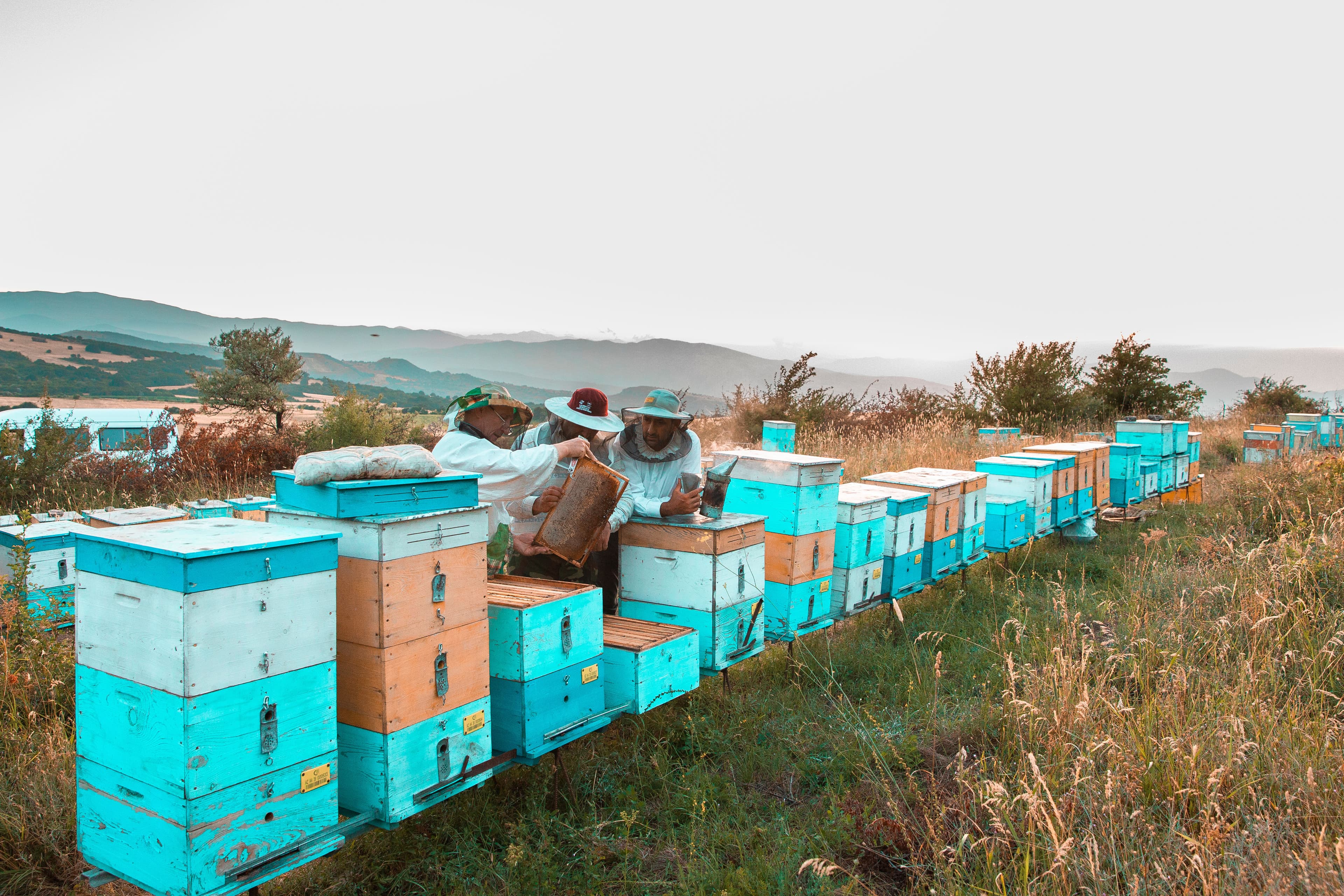
With more beekeepers and hives popping up everywhere, there’s a lot to think about. Bees don’t always get the care they need, especially in big operations. Moving hives around a lot? That stresses them out bad. Feeding bees stuff that isn’t natural? Also not great. People like honey, so they breed bees just for that, but it messes with their health. It’s hard for bees to stay strong when this happens.
Big farms love bees for pollination, but it’s not all good. They don’t get enough variety in their food, and traveling far to pollinate weakens them. For bees to stay healthy, people need to care about their future, not just profits.
Transportation of Bees for Agriculture
Beekeepers in modern times often move bees around for farming. In the U.S., hives get hauled all over, helping pollinate crops like apples, almonds, and blueberries. Farmers depend on this to grow good food and big harvests. Bees buzzing from state to state aren’t just for honey. They’re workers, really.
Here’s a twist: honey bees didn’t always live here. Nope, settlers brought them from Europe way back in the 1600s. Crazy, right? Now bees travel everywhere. They fit into new places, helping plants and people. But moving bees can also spread trouble—diseases like Nosema and pests like Varroa mites sneak along.
Growing the bee industry sounds sweet, but we gotta be smart. Protecting bees while keeping crops pollinated is no easy thing. For the planet, bees staying strong means us staying strong too.
When you move bees to a new place, they see stuff they ain't never seen before. The place could have bugs or sicknesses that the bees ain't ready for, so they get sick. The bees don't know how to deal with the new problems. Sometimes, the bees ain't strong enough for the things they find, so they just get weak. This makes it hard for the beekeepers. Some bees just die because of all these new things. You gotta make sure the bees are okay. Keeping them safe means checking them, making sure they don’t get sick, and studying ways to make them stronger. We have to be careful with them!
The Role of Natural Beekeeping
I think there are problems with big beekeeping. It’s just not the same as when bees are free. People are now trying something called natural beekeeping, and it’s kind of like giving bees their space. Instead of pushing them too much, you let them do their thing. Bees seem to do better when you don’t mess with them too often, they can fight off stuff better. Some folks say that letting the bees be themselves, helps them get stronger. Over time, they say, bees will get better at fighting pests and staying healthy. It’s like they learn by themselves.
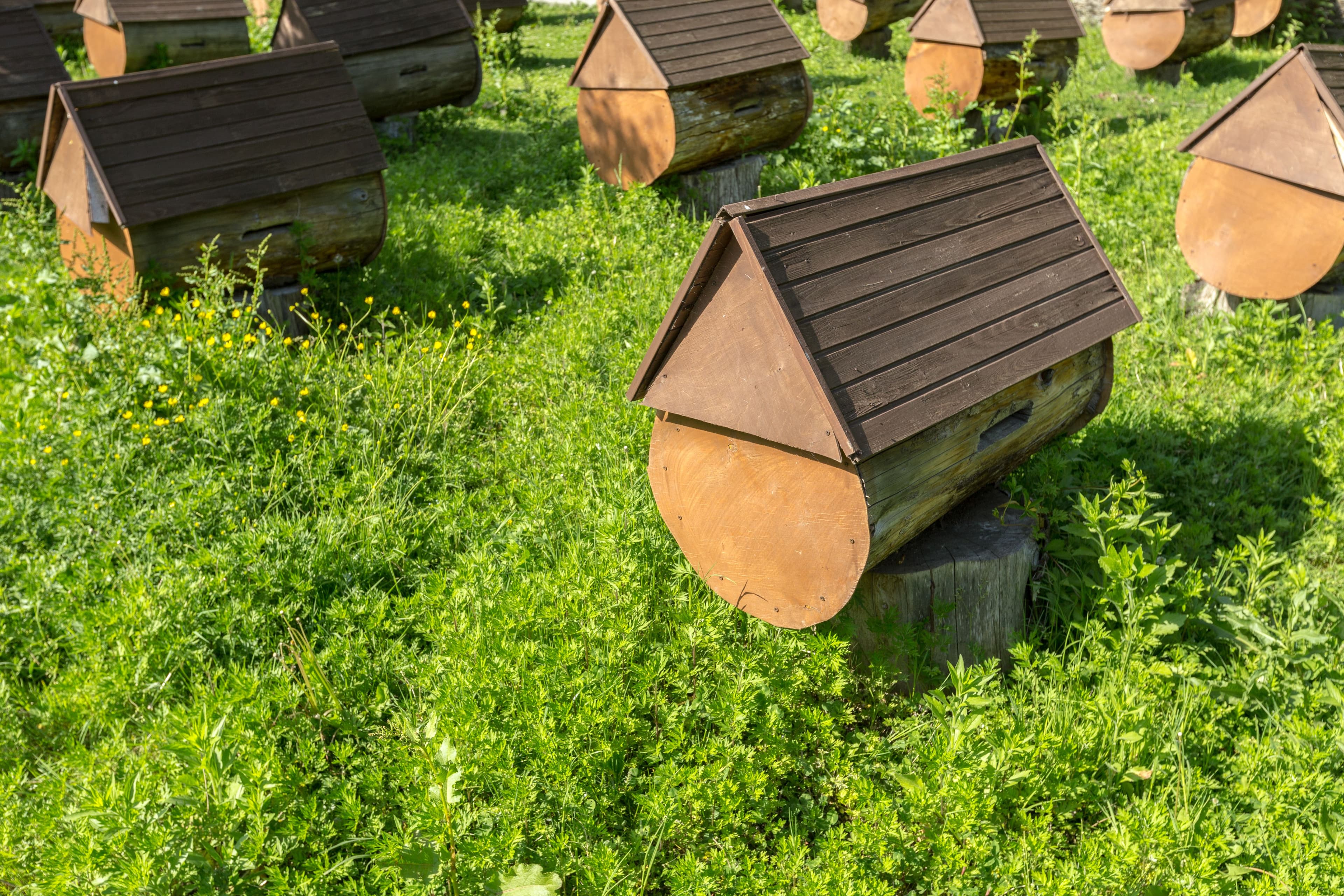
I like to keep bees the natural way, where I don't use any treated wood for my hives. I plant flowers, lots of flowers, so the bees have everything they need to eat. It helps the bees stay healthy and keeps the environment nice. It's really good for the earth too, you know.
I also prefer using local bees, cause they’re better for the place where I live. These bees are used to the weather and plants here, so they do much better in my hives. Plus, they're good at fighting off pests that might hurt them, so the bees don’t get sick. I try to teach other people too, tell them about the bees and how we need to help them. There are workshops where we talk about all of it. By doing these things, we can help the bees and make sure they stay around.
The Spread of Disease and Pests
Beekeepers have big worries today about pests and sickness spreading. Varroa mites, like, are a real big problem. These mites suck the blood out of bees, and that's bad. The bees get weaker, and they get sick from viruses and stuff. Some people use chemicals to try to stop these bugs. But after a while, the bugs get used to the chemicals and they don’t work. This is bad news for everyone.
Also, using chemicals messes with nature. It doesn’t just hurt bees, but other helpful bugs and animals too. Because of that, people are starting to think about using better, safer ways to handle pests. It’s like looking for smarter, healthier ways to help the bees.
Conclusion
Beekeeping has been around for a very long time, even way back in the ancient times. I’ve always wondered how people used to keep bees back then, it's amazing how things have changed! Today, it's much different because of big businesses. Bees need to be moved from one place to another, which can be hard. It’s also tricky to keep them healthy and safe from pests and sickness. I’ve learned that it’s important to keep everything in balance. We have to make sure that the bees are protected but also that there’s enough honey for us.
A lot of people are worried about bees dying. I know it’s scary, but we need to learn from the past to save them. Beekeeping is more than just honey; it helps everything grow. I think it's important to take care of the bees in a way that doesn’t hurt the environment. If we look after the bees, they can help grow food forever!
